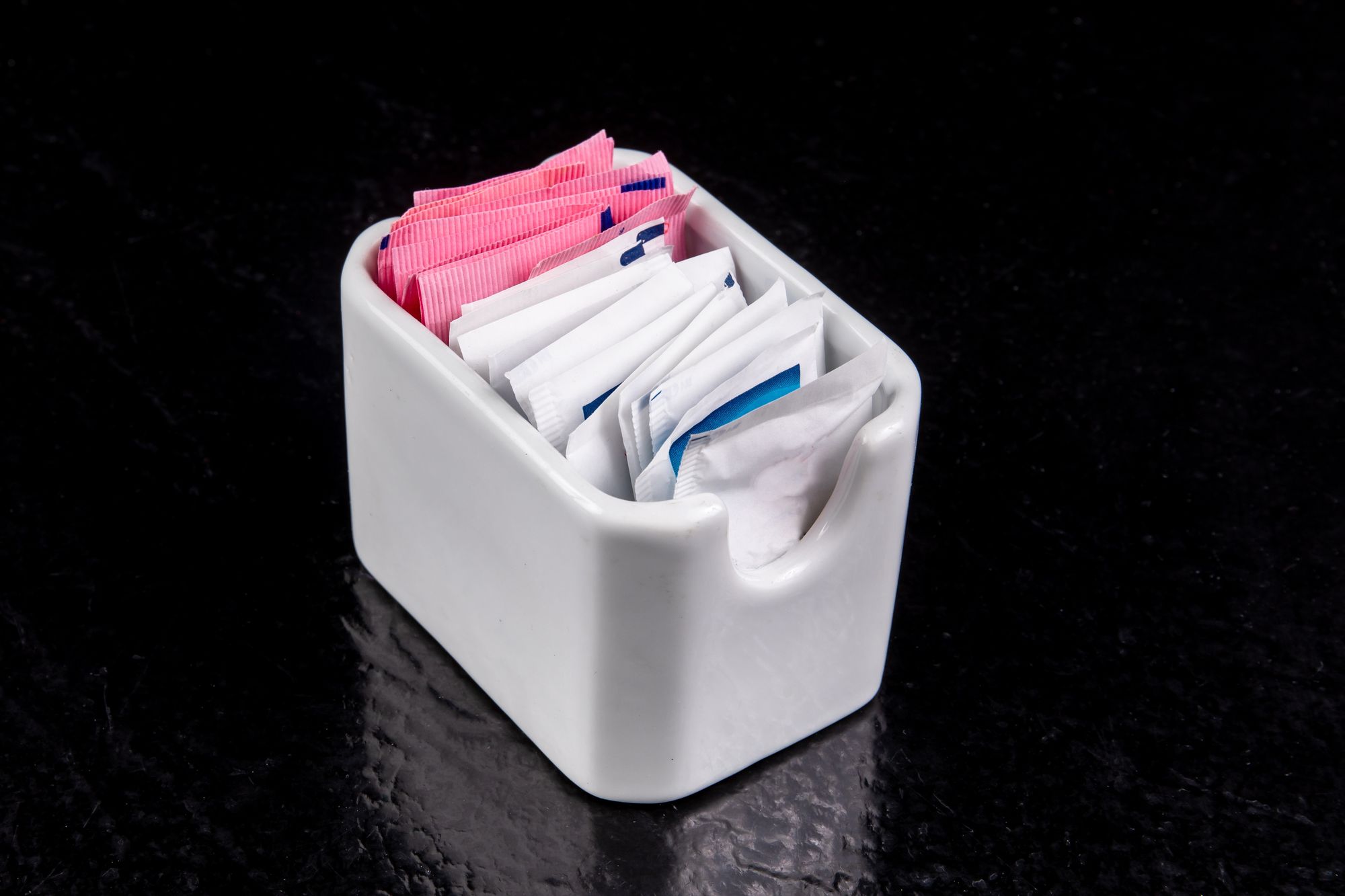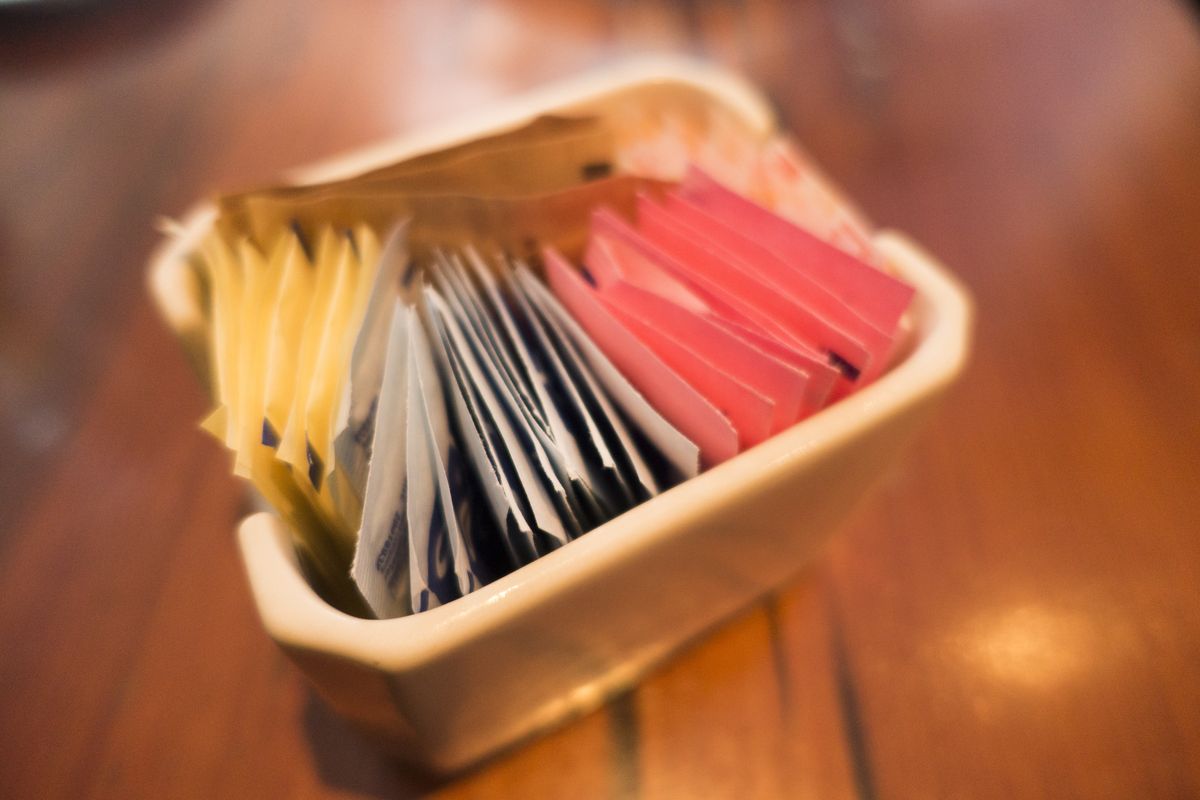Sucralose, commonly recognized by its brand name Splenda, is a sugar substitute that offers intense sweetness without the added calories. With a sweetness level nearly 600 times greater than sugar, it gained approval from the FDA as a general-purpose sweetener back in 1999, becoming a popular choice among consumers. However, the usage of this nonnutritive sweetener (NNS) has sparked significant controversy, with recent studies shedding light on potential risks associated with its consumption. These findings have prompted individuals to question the value of using sucralose altogether.
Understanding Sucralose:
If you've ever carefully examined the ingredient labels on your food products, chances are you've encountered sucralose. This artificial sweetener is a white, odorless substance that easily dissolves in water. It is widely employed in "sugar-free" and "zero-calorie" foods and beverages. The FDA confirms that sucralose possesses an exceptional stability, making it 600 times sweeter than regular sugar and capable of maintaining its sweetness across various conditions and temperatures. As a result, sucralose finds its way into a variety of sugar-free products, including frozen desserts, canned fruits, condiments, salad dressings, chewing gum, baked goods, and beverages. It has gained popularity among dieters and individuals monitoring their sugar intake, particularly those seeking alternatives with zero-calorie sweetness.
Decoding Sucralose: From Manufacturing to Controversies and Health Implications
Sucralose, known by the popular brand name Splenda, is a zero-calorie sugar substitute renowned for its intense sweetness, measuring nearly 600 times sweeter than sugar. Initially approved by the FDA in 1999 as a general-purpose sweetener, it quickly gained popularity. However, sucralose remains a subject of controversy due to emerging research highlighting potential risks associated with its consumption. This article explores the manufacturing process of sucralose, how the human body processes it, the controversies surrounding its use, and its potential impact on weight gain, sugar cravings, and blood sugar levels.
The Creation of Sucralose:
Although sucralose doesn't start off as sugar, it begins its journey from this familiar source. The patented manufacturing process involves multiple steps. Three hydroxyl groups within the sugar molecule are selectively substituted with three chlorine atoms, transforming it into a semi-synthetic sweetener. This molecular alteration results in the ultra-sweet, powdered sucralose we recognize today as a zero-calorie sweetener.
The Body's Response to Sucralose:
Unlike regular sugar, the human body does not recognize the structure of sucralose as a typical sugar molecule. Consequently, it is not stored or metabolized in the same way. Instead, sucralose is excreted in its original form through feces, with only a small portion being absorbed and swiftly eliminated through urine. Research suggests that sucralose can be transmitted through breast milk, indicating its potential presence in adipose (fat) tissue even after excretion.
Controversies Surrounding Sucralose:

Sucralose, like other artificial sweeteners, remains a topic of contention. The FDA has reviewed more than 110 safety studies on sucralose, primarily focusing on toxicity and potential adverse effects on neurological and reproductive systems. As no significant adverse effects were found, the FDA approved it as a general-purpose sweetener. However, recent studies have raised concerns about sucralose. One study in 2015 suggested a potential link between increased sucralose consumption and metabolic disorders. Another study discovered that sucralose contains a chemical that could damage DNA, classifying it as a "genotoxic substance." Additionally, research has indicated negative impacts on gut health, as sucralose can harm the intestinal lining, making it more permeable.
Weight Gain and Sugar Cravings:
While zero-calorie sweeteners are often favored by those seeking weight loss, the effects of these nonnutritive sweeteners on body weight remain inconclusive. Some studies found no direct link between low-calorie sweeteners and weight gain, while others revealed an increase in brain activity related to food cravings and appetite. Recent guidelines from the World Health Organization (WHO) suggest that zero-calorie sweeteners, including sucralose, are unlikely to facilitate significant weight loss and may even increase the risk of chronic conditions such as type 2 diabetes and cardiovascular disease.
Impacts on Sugar Cravings and Blood Sugar Levels:
Artificial sweeteners, including sucralose, may contribute to changes in gut bacteria that promote fat storage. They do not activate reward pathways in the same manner as natural sweeteners, but the sweetness can still trigger sugar dependence and cravings. While sugar substitutes generally do not impact blood sugar levels in healthy individuals, studies have shown conflicting results. Some studies observed increased blood sugar and insulin levels in obese individuals consuming sucralose, while others found an amplified insulin response to sugar when sucralose was consumed prior to glucose.
Sucralose in Common Products:
Sucralose is widely available in pre-packaged items on store shelves due to its stability as a sweetener. It can be found in various food and drink products, including diet sodas, chewing gum, sugar-free gelatin, salad dressings, flavored coffee syrups, barbecue sauces, sugar-free jams and spreads, baked goods, sugar-free candy, frozen desserts, and condiments labeled "sugar-free" or "low-calorie."
Navigating the Controversies Surrounding Sucralose: Understanding its Effects on Health

Sucralose, a sweetener shrouded in controversy, possesses the potential to influence insulin and glycemic responses, metabolism, and cravings. Scientific research has illuminated concerns regarding its impact on health, while recent studies and guidelines from various health organizations shed further light on its potential effects. To maintain a balanced approach to sugar consumption, it is imperative to remain mindful of all sources of sugar, diligently read labels, and explore alternatives to sucralose and other chemically modified sweeteners when seeking to satisfy your sweet tooth. By making informed choices, health-conscious individuals can navigate the complexities associated with sucralose and prioritize their well-being.

